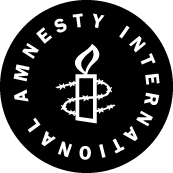Amnesty: Saudi Arabia uses anti-terrorism laws to curb human rights
 London - The authorities in Saudi Arabia have launched a "sustained assault on human rights under the facade of countering terrorism," human rights group Amnesty International said in a report published in London Wednesday.
London - The authorities in Saudi Arabia have launched a "sustained assault on human rights under the facade of countering terrorism," human rights group Amnesty International said in a report published in London Wednesday.
"The anti-terrorism measures introduced since 2001 have set back the process of limited human rights reform in Saudi Arabia," the report said.
Combined with severe repression of all forms of dissent and a weak human rights framework there was now an "almost complete lack of protection of freedoms and rights," according to Amnesty.
Thousands of people had been arrested and detained in virtual secrecy, and others have been killed in uncertain circumstances. Hundreds more faced "secret and summary trials and possible execution."
According to Amnesty, the Saudi Ministry of Justice reported earlier this month that 330 people had been tried for terrorism offences, with sentences ranging from fines to the death penalty.
"These unjust anti-terrorism measures have made an already dire human rights situation worse," said Malcolm Smart, Director of Amnesty International's Middle East and North Africa Programme.
"The Saudi Arabian government has used its powerful international clout to get away with it. And the international community has failed to hold the government to account for these gross violations."
Of the thousands detained by the authorities, some are prisoners of conscience, targeted for their peaceful criticism of government policies.
But the majority are suspected supporters of Islamist groups or factions opposed to the Saudi government's close links to the United States and other Western countries, said Amnesty. They included people forcibly returned from Iraq, Pakistan, Yemen and other countries.
"The abuses take place behind a wall of secrecy. Detainees are held with no idea of what is going to happen to them," said Smart.
Most were held incommunicado for years without trial, and were denied access to lawyers and the courts to challenge the legality of their detention.
The anti-terrorism measures adopted by the government since the attacks in the US on September 11, 2001, had exacerbated long-standing human rights abuses in the country, said the report.
In July, 2007, the Interior Minister reported that 9,000 security suspects had been detained between 2003 and 2007 and that 3,106 of them were still being held.
Reported methods of torture and other ill-treatment included severe beatings with sticks, punching, and suspension from the ceiling, use of electric shocks and sleep deprivation.
Flogging was also imposed as a legal punishment by itself or in addition to imprisonment, and sentences can include thousands of lashes.
The Amnesty report also highlighted how trials of political or security detainees in Saudi Arabia had taken place in extreme secrecy and failed to meet international standards of fairness.
In March, the government announced that the trials of 991 detainees accused of capital offences had begun in a special criminal court. In many cases, defendants and their families had not been informed of the progress of legal proceedings against them, said Amnesty. (dpa)